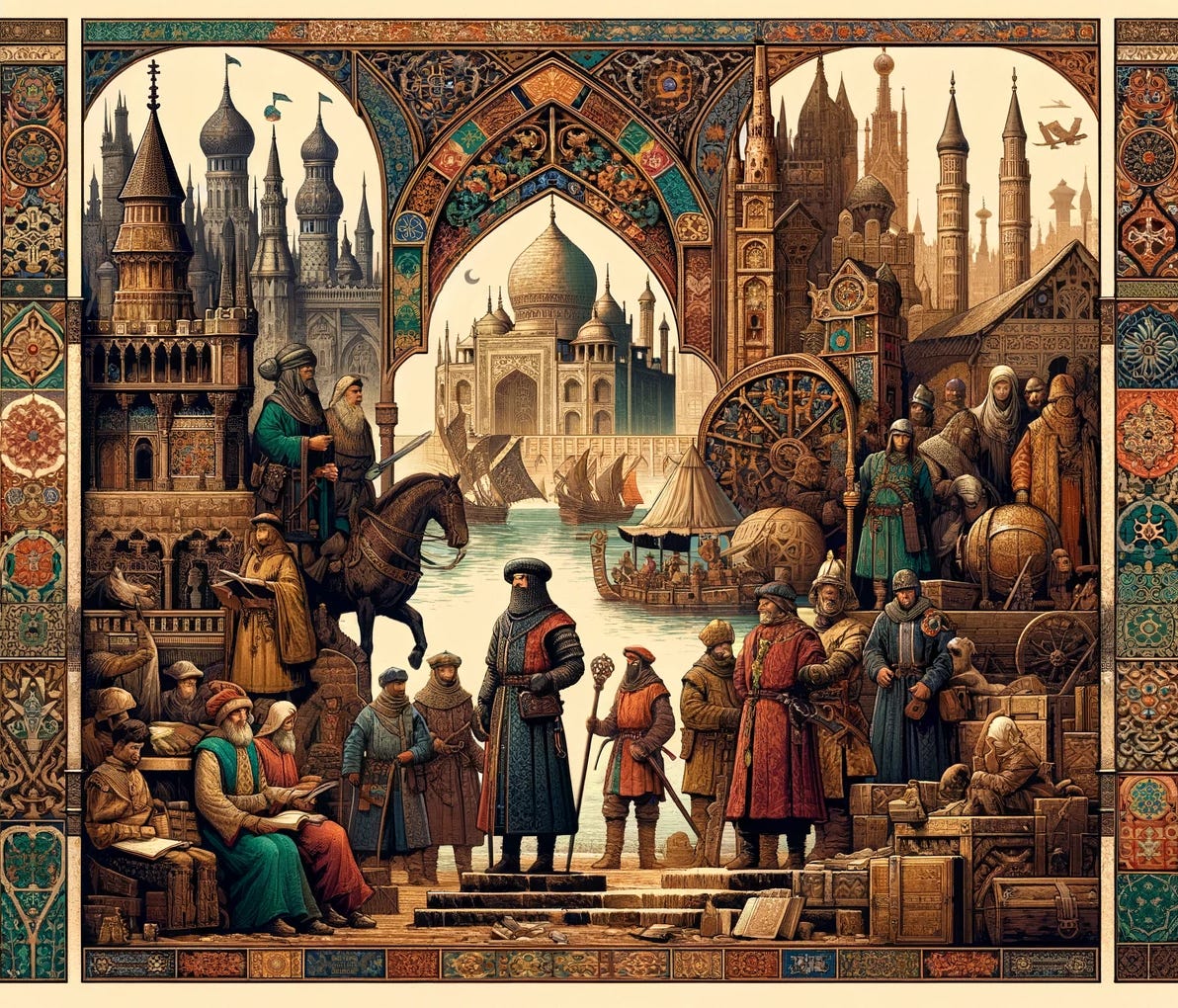The Great Conjunction of Jupiter and Saturn in Aquarius in 1226
A historical investigation in retrospect of this astrological transit that started an new era and that we experienced again in 2020.
I'm preparing a podcast that I'll upload before the end of the day, about one of the conjunctions Pluto has experienced this February, which, in my opinion, initiates a quite intense cycle that will last until August 2025.
The research for this podcast led me toward the Great Conjunction of Jupiter and Saturn at 0 degrees Aquarius, which took place in December 2020. The last time this conjunction occurred was in March 1226, which offers us the opportunity to look back retrospectively to verify if the information provided by astrology is reflected in reality.
What I have researched so far has satisfied me, as we can consider the Great Conjunction in Aquarius of 1226 as a harbinger of significant changes in the society of that time.
I share what I have found with you, in case you find it interesting.
The Great Jupiter-Saturn Conjunction in Aquarius - Before and After
To offer a more structured comparison of what was happening before and after 1226, we will highlight some key aspects such as politics and society, science and technology, culture and religion, as well as exploration and commerce. This analysis will allow us to see the differences in historical trajectory and significant developments.
Politics and Society
Before 1226:
Europe was deeply rooted in the feudal system, with a hierarchical social structure where land was the primary source of power and wealth.
Power was fragmented among numerous feudal lords, and the concept of the nation-state was in its very early stages of development.
After 1226:
The advance of the Mongol Empire significantly altered the power balance in Eurasia, leading to greater interaction between the East and West.
In Europe, there began a slow decline of feudalism, giving way to the emergence of more powerful city-states and an increase in trade and a monetary economy.
Science and Technology
Before 1226:
Science and technology were largely limited by knowledge inherited from classical antiquity and the Church's influence on the interpretation of the natural world.
Significant innovations were less frequent and spread slowly due to limitations in communication and the exchange of ideas.
After 1226:
The 13th century and beyond saw major advances in sciences such as mathematics, astronomy, and physics, partly driven by contact with the knowledge of the Islamic world.
The introduction of gunpowder, the compass, and improvements in shipbuilding marked the beginning of a new era of exploration and warfare.
Culture and Religion
Before 1226:
Culture was dominated by the influence of the Church, with a focus on spiritual life and preparation for the afterlife.
Education and knowledge were primarily in the hands of the clergy and focused on religious and philosophical studies.
After 1226:
A cultural renaissance began to take shape, highlighting the value of humanism and the rediscovery of classical literature, art, and philosophy.
Movements within the Church seeking reforms and a return to more pious practices laid the groundwork for future religious transformations.
Exploration and Commerce
Before 1226:
Commerce was mostly limited to local and regional routes, with some long-distance exceptions like the Silk Road.
Large-scale exploration was rare, and geographical knowledge of the world was incomplete and centered around the Mediterranean and surrounding regions.
After 1226:
Mongol expansion facilitated an unprecedented exchange of trade and culture between the East and West, enriching both.
Advances in technology and the desire to access trade routes and resources drove explorations, eventually leading to the discovery of new lands and the beginning of the global exploration era in the 15th and 16th centuries.
We can see that the period after 1226 was marked by significant transformations that reflected a move away from old structures and practices towards new forms of political organization, advancements in science and technology, a cultural and religious flourishing, and an expansion in trade and exploration. These changes laid the groundwork for the Renaissance, the Reformation, and the age of exploration, highlighting a transition era towards modernity.






Obsessed with this! Can't wait for this podcast to drop. Aquarius energy isn't easy, but the results are worth it!